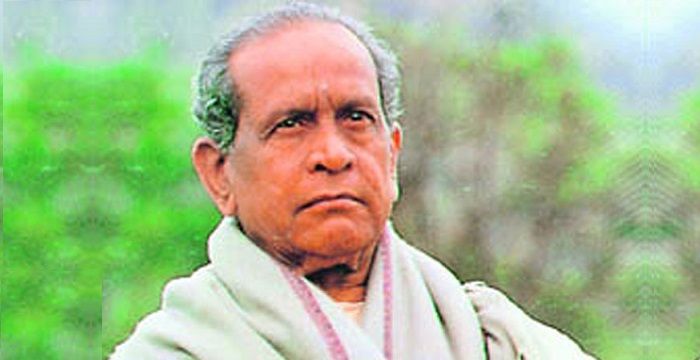Bharat Ratna Pandit Bhimsen Gururaj Joshi Was an Indian vocalist from Karnataka in the Hindustani classical tradition. He is known for the khayal form of singing, as well as for his popular renditions of devotional music (bhajans and abhangs).
In 1998, he was awarded the Sangeet Natak Akademi Fellowship, the highest honour conferred by Sangeet Natak Akademi, India’s National Academy for Music, Dance and Drama. Subsequently, he received the Bharat Ratna, India’s highest civilian honour, in 2009.
Joshi first performed live in 1941 at the age 19. His debut album, containing a few devotional songs in Marathi and Hindi, was released by HMV the next year in 1942. Later Joshi moved to Mumbai in 1943 and worked as a radio artist. His performance at a concert in 1946 to celebrate his guru Sawai Gandharva’s 60th birthday won him accolades both from the audience and his guru.
Joshi’s singing has been influenced by many musicians, including Smt. Kesarbai Kerkar, Begum Akhtar and Ustad Amir Khan. Joshi assimilated into his own singing various elements that he liked in different musical styles and Gharanas.
In devotional music, Joshi was most acclaimed for his Hindi, Kannada and Marathi Bhajan singing. He has recorded bhakti songs in Marathi, Santavani and Kannada, Dasavani.
Pt. Bhimsen Joshi was widely recognised in India due to his performance in the Mile Sur Mera Tumhara music video (1988), which begins with him. The video was created for the purpose of national integration in India, and highlights the diversity of Indian culture. Pt. Bhimsen Joshi was also a part of Jana Gana Mana produced by A. R. Rahman on the occasion of 50th year of Indian Republic.
A classicist by training, and temperament, Bhimsen Joshi was renowned for having evolved an approach that sought to achieve a balance between what may be termed as “traditional values and mass-culture tastes” and as such he went on to have supposedly the largest commercially recorded repertoire in Hindustani vocal music. Pt. Joshi’s iconic status in the music world has earned him a whole generation of suni shagirds who by merely listening to him have picked up his style and not through any formal tutelage. His greatest endeavour in perpetuating his legacy could be the Sawai Gandharva Festival held at Pune annually since the year 1953 which seeks to promote a certain music culture.
Madhav Gudi, Narayan Deshpande, Shrikant Deshpande, Anand Bhate and others are some of his more well-known disciples.

